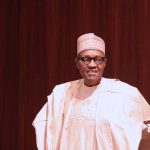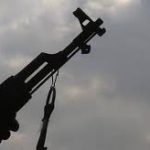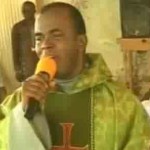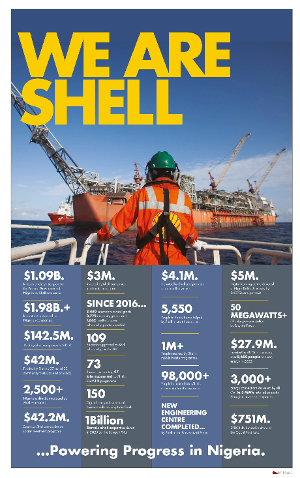Opinion: Hosni Mubarak and His Imprisonment
Articles/Opinion, Latest Headlines Tuesday, May 19th, 2015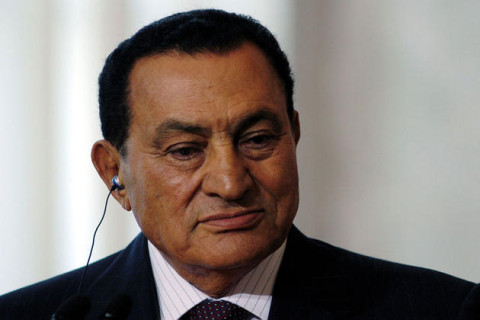
By Muhammad Ajah – How was a President called Muhammad Hosni El-Sayed Mubarak sentenced to prison for corruption, nay stealing, as defined by a Nigerian President? Does Egypt have the wealth that can attract stealing by its leaders? Is this the Egypt that I lived in for nine years when poverty moved on its streets and when the Egyptians knew not much about Nigeria than names like Arrais (President) Babangida, Footballer Okocha, Footballer Rashidi Yekini and petrol. That was part of the period which at least our own black race, Africans, had the highest respect for Nigerians. Despite it would be difficult to convince a common Egyptian that there is a world better than Egypt, it was possible to receive a salute for being a Nigerian by then.
It was not corruption alone or stealing that earned Mubarak his humiliation and imprisonment. It was a revolt from the so much wasted blood of innocent Egyptians for no justifiable reasons. How lucky Mubarak is that the nemesis that befell Muammar Gaddafi of Libya and Saddam Hussein of Iraq, amongst others, did not reach him. It is enough sign that, however long, the retribution for tyranny and over dependence on foreign allies who use and dump politicians is manifest. A saying in an Igbo dialect holds: “When dinning with the jinn (one who you cannot easily access), use a long spoon”. This will give you the opportunity to escape when you sense foul play.
Egypt till the early 90s was a place where people lived according to their means of livelihood. The prices of food commodities were comparatively stable because the government had a functional scheme for its civil servant. The excesses of businessmen were controlled because government had special markets for the teeming poor masses. I recalled a certain time when businesses and government activities were shut down for days because of a very slight increase of a piesta (kobo) in the price of their staple bread (aish). Yes, I was surprised that government can control prices, unlike Nigeria. The Egyptian government would announce the reason for scarcity or increase in the price of any commodity and give assurance of reversion to normalcy within a given period. The people will monitor the government to ensure that it keeps its promises to them.
Egypt was so poor that civil servants earned less than a US dollar per day. One saw donkeys move freely in the Cairo metropolis carrying wastes and buses, trams and trains overloaded with people for intra-city or intercity journies. Cairo – the largest city in Africa – was Egypt itself and Egyptians managed life with patience. Management of life by millions of the citizens was inevitable so many of them, in millions, have to live in the graveyards of Duwaiqa. And for those from nearby cities to Cairo and who could find a place to pass the nights during working days, the weekends were made compulsory to travel home. Areas such as Heliopolis, Zamalik, even Al-Abassiyyah, Ataba, Abidin were interesting places. Alexandra was quite interesting too.
Hosni Mubarak did his best to develop Egypt. I cannot be sure that he is scapegoat of the American imperialism. During his reign as Egyptian President, he lowered his human pride and dignity so as to remain the second recipient of the United States’ aids. Mubarak would go to America sometimes uninvited and would stay several days seeking to meet with the US President. They may have known him as a beggar. But that did not bother him because he was more interested in keeping the relationship with the US at all cost. Even when invited by the US, Mubarak can be received at the Airport by the Secretary of State or a lower ranking officer. Mubarak was not worried about the hands he shook at the US Airports (whichever he was directed to land) or the faces that welcomed him, he only believed that the end justified his reasons for any visit. Egypt received an average aid of $2 billion per year from the US since the 1979 signing of the Camp David Peace Accords.
I had several handshakes with Mubarak because he invited foreign students to several occasions which I was often lucky to be part. I can remember three times. Maybe he was more accessible by foreign students than his own people. Or many things changed later at the end of his reign when the opposition mounted on him to conduct an election and hand over power to another citizen. Like a typical African man – though white-skinned, power had intoxicated him. He was not ready to play by the rule and it seemed the Americans also became tired of his face, actions and power mongering. Mubarak twisted the constitution severally to the extent that the people went to poll only to vote yes or no for him. Later he decided to short change the whole country by trying to impose his son who is serving the jail term with him. The crimes of Mubarak appeared to be numerous.
He was the vice president to Anwar Sadat from 1975 till October 6, 1981. During a military parade in Cairo, while both were sitting next to each other reviewing stand, soldiers opened fire from a truck, killing Sadat and injuring Mubarak. Mubarak took over and served as the fourth President of Egypt from 1981 until he was ousted in February 2011 after mass protests against his regime erupted in Cairo and other Egyptian cities. He is reported to have survived at least six assassination attempts in his 29 year reign.
Mubarak’s military career began straight after high school. He eventually became Commander of the Air Force and Deputy Minister of Defence. He was promoted to Air Chief Marshall after the October War of 1973. Mubarak brought back the country’s Emergency Law, which muzzled political dissent by legalizing censorship and gave the government the right to imprison people for any length of time with no reason. He believed his strong arm tactics were necessary to combat the Islamic terrorism that killed his predecessor and put the country’s tourism industry in jeopardy. He earned himself a reputation as a statesman and used his sponsorship of peace with Israel to promote himself as an ally to the West. Every six years, Mubarak would hold elections to maintain his position as president. Many have called these elections “rigged”. In 2005, no international observers were allowed to witness the vote.
His presidency pursued policies started by his predecessor, including the liberalization of Egypt’s economy and a commitment to the 1979 Camp David Accords. It fostered relations with the Arab League, the United States of America, Russia, India, and many Western countries. His government was marred by political censorship, police brutality, arbitrary detention and torture, restrictions on freedom of speech, association and assembly. These were possible through Egypt’s Emergency Law No. 162 of 1958 since 1967, which extended the police powers, suspended constitutional rights and legalized censorship. The law sharply circumscribed any non-governmental political activity: street demonstrations, non-approved political organizations, and unregistered financial donations were formally banned. In 2009 it was reported that between 5,000 and 10,000 Egyptians were held without charge. Police and security forces regularly used torture and brutality. 701 cases of
torture at Egyptian police stations were reportedly documented from 1985 to 2011, and 204 victims died from broad daylight torture and mistreatment at police checkpoints. Mubarak’s Press and Publications Laws called for punishment by fines or imprisonment for those who criticized the president.
Unrest and terror gradually manifested during Mubarak’s reign. In February 1986 the Central Security Forces took to the streets, rioting, burning and looting in demand for better pay. The uprising was the greatest challenge of the Mubarak presidency up to that point and only the second time in modern Egyptian history the Army was dispatched to Egyptian streets to restore order. Between 2007and 2008 Egypt reportedly witnessed more than 150 demonstrations and strikes. Some were violent and required heavy deployment of the security forces.
From 1991, Mubarak undertook an ambitious domestic economic reform program to reduce the size of the public sector and expand the role of the private sector. It yielded positive results for the country. But its monetary restructuring, the liberalization of the country’s money markets, a reform of the tax system and strategic reductions in governmental social spending, resulted in “staggering hardships for the majority of the people” according to at least observations. With housing scarcer and more expensive “marriage became harder for young people; it became common to have a family of six or seven living together in a single room.
Early in the Mubarak era, from 1989 to be specific, Egypt continued to have a skewed distribution of wealth. Reports showed that about 2,000 families had annual incomes in excess of 35,000 Egyptian pounds (£E), while more than 4 million people earned less than £E200. And while in office, political corruption in the Mubarak administration’s Ministry of Interior rose dramatically, due to the increased power over the institutional system that was necessary to secure his prolonged presidency.
Mubarak was finally brought down, not by extremists, but a grassroots protest in the street. After mass protests against the regime erupted in January 2011, Mubarak announced he would not contest the next election. Within weeks, he appointed a vice-president, who then announced Mubarak had resigned from power. He was imprisoned for life after being found guilty of the deaths of anti-government protestors at the centre of Egypt’s Arab Spring uprising in January 2011. He was ousted after 18 days of demonstrations when, on 11 February, Vice President Omar Suleiman announced that Mubarak had resigned as president and transferred authority to the Supreme Council of the Armed Forces. On 13 April, a prosecutor ordered Mubarak and both his sons to be detained for 15 days of questioning about allegations of corruption and abuse of power. He was then ordered to stand trial on charges of murder of peaceful protestors during the revolution.
Is there any lesson from these events for African leaders who attempt to turn their countries into dynasties where they wish to rule till death? Can our African leaders learn from these happenings around the world?
Muhammad Ajah is a writer, author, advocate of humanity and good governance based in Abuja E-mail: mobahawwah@yahoo.co.uk
Related Posts
Short URL: https://www.africanexaminer.com/?p=23593



